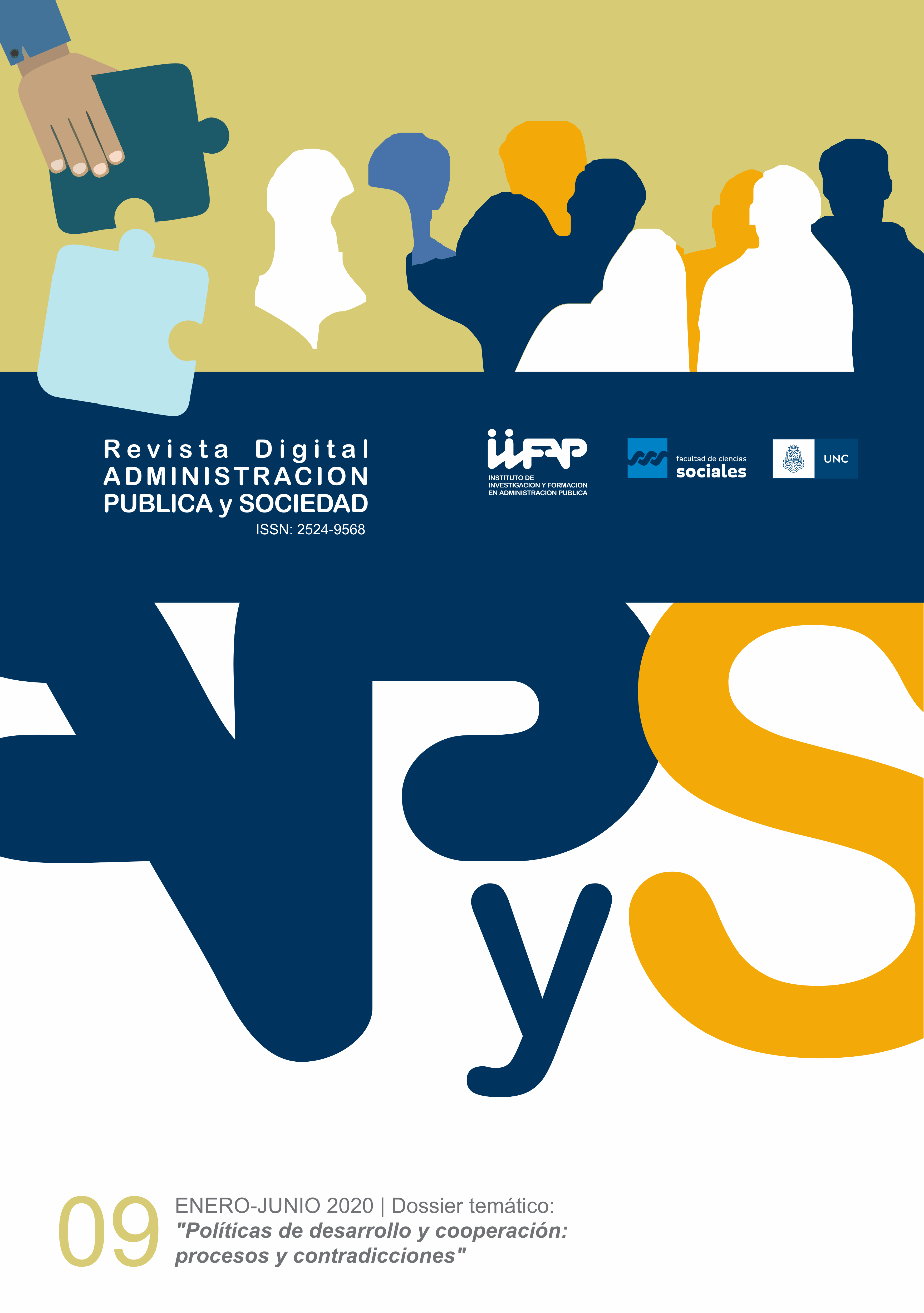The democracy agenda and the non-governmental international cooperation in Brazil: cycles and pacts at the turn of the century
Main Article Content
Abstract
The alliance of non-governmental agencies for international cooperation, mainly European, with different sectors of Brazilian civil society has historically contributed to its organization, articulation and strengthening. Based on these partnerships, International Non-Governmental Cooperation played an important role in the process of re-democratization in Brazil and, over time, for the consolidation and socio-political projection of different NGOs and social movements. The main goal of this article is to provide a historical overview of the cycles that have gone through and the pacts that guided the non-governmental international cooperation relations in Brazil, situating them in terms of values, agendas and conjuncture influences. Finally, based on an analysis of the current Brazilian socio-political context, it reflects on the resumption of the defense of democracy to the center of the agenda of these cooperation relations. In this way, the work seeks to contribute to the presentation of which debates are necessary for this type of global solidarity to continue maintaining vitality and pertinence.
Article Details

This work is licensed under a Creative Commons Attribution-NonCommercial-ShareAlike 4.0 International License.
Authors who publish in this journal accept the following terms of the copyright policy:
- Authors shall retain their copyright (including copyrights) and shall grant to the journal the right of first publication of their work, which shall simultaneously be subject to the Creative Commons Recognition License: No commercial use of the original work or any derivative works is permitted, distribution of which must be made under a license equal to that which governs the original work.
- Authors may adopt other non-exclusive license agreements for the distribution of the version of the published work (e.g., placing it in an institutional repository or publishing it in a book) provided that the initial publication in this journal is indicated.
- Authors are allowed and encouraged to disseminate their work through the Internet (e.g., in institutional repositories or on their website) after the publication process, which may lead to interesting exchanges and increased citations of the published work. (See The Effect of Open Access).
How to Cite
References
BRASIL (2019a). Medida Provisória nº 870, de 1º de Janeiro de 2019. Brasília, DF. Disponible en: http://www.planalto.gov.br/ccivil_03/_Ato2019-2022/2019/Mpv/mpv870.htm Acceso en: 14 de julio de 2019.
BRASIL (2019b). Lei nº 13.844, de 18 de junho de 2019. Brasília, DF. Disponible en: <http://www.planalto.gov.br/ccivil_03/_Ato2019-2022/2019/Lei/L13844.htm> Acceso en: 14 de julio de 2019.
CAMPOLINA, Adriano (2011) Novos paradigmas para a cooperação internacional. Brasil, América Latina e a Cooperação Internacional. En: Le Monde Diplomatique, Encarte Especial, pp. 09-10.
GOHN, Maria da Glória Marcondes (2005). O protagonismo da sociedade civil: movimentos sociais,
ONGs e redes solidárias. São Paulo: Cortez.
GOHN, Maria da Glória Marcondes (2008). Abordagens teóricas no estudo dos movimentos sociais na América Latina. Salvador: Cadernos CRH, v. 21, nº 54, p. 439-455.
GRAVE, Marta Ribeiro (2020). O Sertão Está em Toda Parte: O Local e o Global em Redes de Globalização Contra-hegemônicas. Tesis de maestria, 99p. Programa de Pós-Graduação em Desenvolvimento Social, Universidade Estadual de Montes Claros/ Minas Gerais. Tutor: Prof. Dr. Antônio Dimas Cardoso.
INOUE, Cristina Yumie Aoki (1997). Bases para um novo pacto de cooperação. En: Cadernos ABONG. Recife: Associação Brasileira de Organizações Não Governamentais (ABONG), nº 17, julio/1997.
LYRA, Carla (2005). Ação política e autonomia: a cooperação não-governamental para o desenvolvimento. São Paulo: Annablume; Terre des Hommes Suisse.
PESSINA, Maria Elisa Huber (2012). O ideário de desenvolvimento pós 1990 e as mudanças na cooperação internacional não governamental: entre as circunstâncias e as peculiaridades do caso alemão. Tesis de maestria, 255p. Programa de Pós-Graduação em Administração, Núcleo de Pós- Graduação em Administração da Escola de Administração, Universidade Federal da Bahia. Salvador. Tutora: Prof.ª Dr.ª Elsa Sousa Kraychete.
SANTOS, Boaventura de Sousa (1999). Pela mão de Alice: o social e o político na pósmodernidade.
Porto: Edições Afrontamento.
SANTOS, Tacilla da Costa e Sá Siqueira (2013). Entre o Norte e o Sul: um estudo sobre o papel das organizações da sociedade civil brasileira na cooperação internacional para o desenvolvimento. Tesis de doctorado, 322p. Programa de Pós-Graduação em Administração, Núcleo de Pós-graduação em Administração da Escola de Administração, Universidade Federal da Bahia. Salvador. Tutor: Prof. Dr. Carlos R. S. Milani.
SORJ, Bernardo (2006). Sociedade civil e política no Brasil. En: OLIVEIRA, Miguel Darcy de; SORJ,
Bernardo (eds.). Seminário Sociedade civil e democracia na América Latina: crise e reinvenção
política. São Paulo: Instituto Fernando Henrique Cardoso, pp. 59-72.
TEIXEIRA, Ana Cláudia Chaves (2003). Identidades em construção: as organizações não
governamentais no processo brasileiro de democratização. São Paulo: Annablume; Fapesp; Instituto Pólis.

